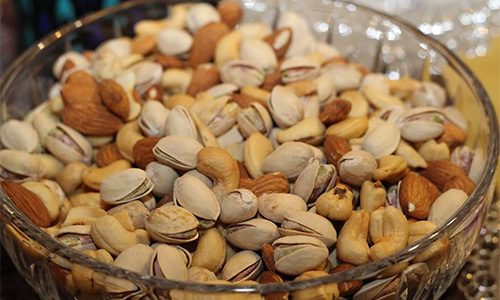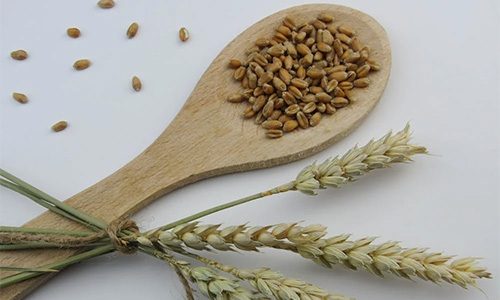Magnesium (Mg) is an essential mineral important for a wide range of bodily functions, including muscle and nerve function, heart rhythm, immune system health, and bone strength. It also plays a crucial role in regulating blood sugar levels and blood pressure.
Magnesium is involved in over 300 biochemical reactions in the body. Despite its importance, studies suggest that many people do not consume enough magnesium in their diets. This can lead to various health issues, such as muscle cramps, high blood pressure, and even heart disease.
Luckily, there are many ways to increase Mg intake, such as through dietary sources like leafy greens, nuts, and whole grains, or magnesium supplements. Explore the benefits of magnesium and discuss some ways to incorporate more of it into your daily routine.
Health Benefits of Magnesium
Magnesium is an essential mineral that plays a role in several bodily functions, including:
- Muscle and nerve function: Magnesium helps relax muscles and transmit nerve signals.
- Blood pressure regulation: Magnesium ensures lower blood pressure in people with high blood pressure.
- Heart health: Preventing heart arrhythmias and regulating the heartbeat are the other health benefits of magnesium.
- Diabetes: Magnesium helps improve blood sugar control in people with diabetes.
- Bone health: Magnesium helps build strong bones and prevent osteoporosis.
- Sleep: Magnesium helps relax your body and mind and promotes sleep.
- Anxiety and depression: Magnesium can reduce anxiety and depression.
- Headaches: Magnesium can prevent and relieve headaches.
- Constipation: Magnesium can help relieve constipation.
What Are the Symptoms of Magnesium Deficiency?
The symptoms of magnesium deficiency can vary from person to person, but they may include:
- Muscle cramps: Magnesium is essential for muscle contraction and relaxation, so a deficiency can lead to muscle cramps.
- Fatigue: Magnesium is involved in energy production, so a deficiency can lead to fatigue.
- Insomnia: Magnesium assist in relaxing the body and mind, so a deficiency can lead to insomnia.
- Anxiety and depression: It helps reduce anxiety and depression, so a deficiency can lead to these conditions.
- Constipation: Magnesium helps draw water into the intestines, so a deficiency can lead to constipation.
What Foods are Rich in Magnesium?
Most people don’t get enough magnesium from the foods they intake. So, having a supplement is a better option. Many foods contain magnesium that fulfills our daily value. Some best food sources of magnesium include:
Nuts and Seeds
Cashews, almonds, peanuts, chia seeds, and pumpkin seeds are good sources of magnesium. Peanut butter is the best way to get magnesium into your food.
Leafy Green Vegetables
Kale, spinach, collard greens, and Swiss chard are a good source of magnesium. You can add this to different types of recipes and makes your day’s worth of magnesium.
Whole Grains
Quinoa, shredded wheat, and brown rice are the best ways to add magnesium to your diet. You can intake this daily.
Legumes
Legume is a plant from the Fabaceae family and a powerhouse of multiple minerals, especially magnesium. Black beans, Edamame also known as soybeans, and Lima beans are the legumes containing magnesium. All these consist of good sources of fiber and protein.
Avocado
Avocados are loaded with vitamins, and heart-healthy nutrients, and are rich in magnesium. You can add this on top of whole-grain toast and salad which helps you get closer to your daily intake target.
Related Blog: Why Stomach Pain Occurs after Eating Avocado!
Bananas
Bananas are best known for magnesium and bone-strengthening potassium. It contains a good source of fiber and Vitamin C beneficial for better health.
Read Also: Health Benefits of Eating Bananas
Dark Chocolate
Dark chocolate is a good source of magnesium, and it also contains antioxidants that are beneficial for health. It lowers inflammation, and blood pressure and improves blood flow.
Fatty Fish
Add fish such as tuna, salmon, mackerel, and halibut to boost your magnesium intake, fatty acids, and Vitamin D. Eating fish can improve your mental and physical health.
Yogurt
Low-fat or nonfat yogurt is a great source of magnesium. You can pair yogurt with any fiber-rich fruit for a healthy breakfast. Look at these surprising uses of yogurt.
Tofu
A staple food with high protein content provides a good amount of iron, magnesium, calcium, and selenium. It is a soy product made from bean curd that reduces the risk of stomach cancer.
Does Magnesium Help You Sleep?
Magnesium helps you get better sleep and feel less tired. You can find this in foods like nuts, dairy, leafy greens, soy products, and whole grains. Having these foods containing magnesium ensures you better sleep.
Can I Get Enough Magnesium Through My Diet?
It is possible to get too much magnesium, but this is rare. Magnesium toxicity can occur if you take too many magnesium supplements or if you have a medical condition that makes you more sensitive to magnesium. Symptoms of magnesium toxicity can include nausea, vomiting, diarrhea, low blood pressure, and confusion.
Conclusion
In conclusion, magnesium is an essential mineral that plays a crucial role in many bodily functions. Incorporating this component into your diet can offer numerous health benefits of magnesium for wellness, including improved bone health, better sleep, reduced anxiety, and lower risk of certain chronic diseases. Ensure that you get enough magnesium which supports your overall health and well-being.

























